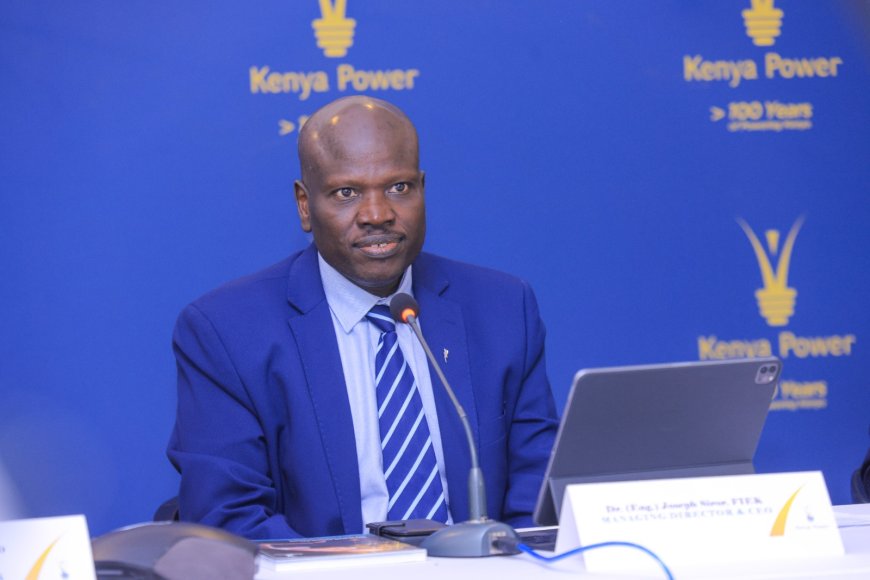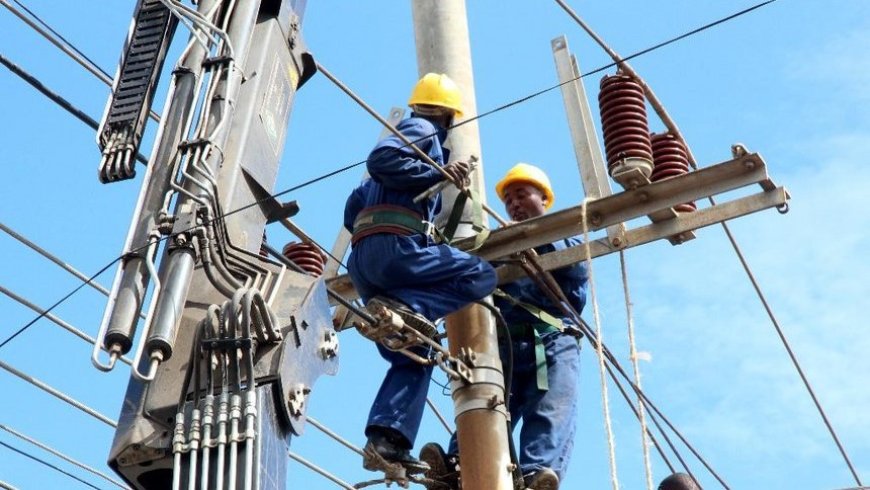Kenya Power Explains Why It Fired 49 Employees
Kenya Power Chief Executive Officer (CEO) Joseph Siror, who spoke during the company's annual general meeting, affirmed that the company does not tolerate vices including fraud and corruption.

Kenya Power on Friday, November 29 revealed that it dismissed 49 employees in 2024 for violating the company's code of ethics.
Kenya Power Chief Executive Officer (CEO) Joseph Siror, who spoke during the company's annual general meeting, affirmed that the company does not tolerate vices including fraud and corruption.
"We have zero tolerance for fraud, corruption, and bribery, as demonstrated by the dismissal of 49 employees for violating the company’s code of ethics, alongside ongoing efforts to combat unethical practices, improving our corporate reputation index to 63% from 61% the previous year," Siror remarked.
The CEO further expressed that the monopoly power company managed to surpass its annual connecting target by 12 per cent.

Kenya Power technicians at work. /KENYAN WALLSTREET
"We exceeded our annual connectivity target by 12%, adding 447,251 new customers and growing our base to 9.66 million, supported by the availability of critical materials in the year’s second half and the deployment of a Rapid Results Initiative (RRI) to clear the connectivity backlog," Siror explained.
Additionally, he indicated that the company's share price had dipped to a low of Ksh1.40 over the past five years but has since risen significantly to Ksh3.76, attributing this recovery to renewed investor confidence and the company's dedication to fostering growth and profitability.
Speaking during the meeting, Kenya Power Board Chairperson Joy Masinde, noted that the company is committed to corporate social responsibility and community investments to drive positive social impact.
"In September, we launched the Kenya Power Foundation, highlighting our commitment to corporate social responsibility and community investments, and in November, we unveiled the Sustainability Strategy Report, further underscoring our focus on these key areas to drive positive social and environmental impact," Masinde remarked.
Also called the Kenya Power and Lighting Company (KPLC) in its ticker, Kenya Power reported a profit before tax of Ksh43.67 billion, a significant improvement from a loss of Ksh4.43 billion in the previous period.
This turnaround was fueled by a 21% increase in revenue, which rose to Ksh231.12 billion. Contributing factors to this growth include new connections, increased manufacturing activity, and a strengthening of the local currency against major global currencies.
The company highlighted its dedication to corporate social responsibility and community investment. In November, KPLC unveiled its Sustainability Strategy Report, reinforcing its commitment to driving positive social and environmental impact.
This announcement of the dismissal came a day after Kenya Power was put on the spot by President William Ruto for failing to follow his directive regarding the onboarding of government services to eCitizen.
Speaking at the first anniversary of eCitizen, Ruto pointed out that some CEOs had not yet implemented the government’s mandate to transition their services to the platform, and he specifically mentioned KPLC’s CEO in this context.
“There are government agencies that are still dodging, and I want to put them on notice. We cannot continue to collect public money in grey areas and dark corners,” Ruto stated, naming the 34 companies one by one.
"These entities are yet to comply with my directive that their services, payments and revenues must be on the eCitizen platform so that Treasury can follow on revenues that are being collected by the government."
As a result, Ruto directed the agencies to comply with the directive in one week or face consequences. ''They have one week to comply, otherwise, they can make use of the door,'' Ruto warned.
Other than KPLC, the other government agencies listed as not complying were the Energy and Petroleum Regulatory Authority (EPRA), the Kenya Water Institute, and the National Cancer Institute of Kenya.






